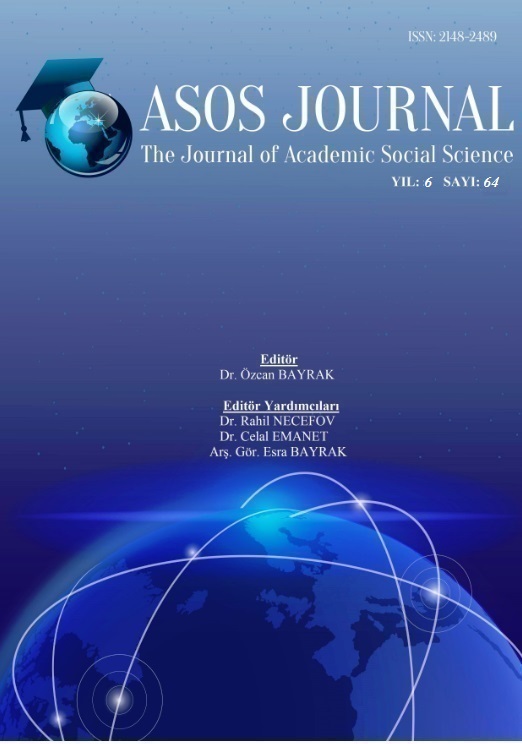Author :
Abstract
Bu çalışmada Şanlıurfa'da yaşayan organik ürün tüketicilerinin tüketim nedenlerinin belirlenmesi amaçlanmıştır. Bu kapsamda basit tesadüfi örnekleme yöntemiyle, yüz yüze görüşmeler yoluyla, organik gıda tüketicileri ile 382 anket yapılmıştır. Analizlerde Likert tutum ölçeği, Mann-Whitney U ve Kruskall-Wallis testleri kullanılmıştır. Organik ürünler, %77.7 oranında tüm aile için ve %34.8 oranında ise ihtiyaç olduğunda alınmaktadır. Katılımcıların %77'si organik gıdalarla ilgili yeterli tanıtımın yapılmadığını belirtmişlerdir. Cinsiyet, yaş, medeni hal, eğitim seviyesi, meslek, gelir ve ikamet yeri değişken olarak kullanılmıştır. Cinsiyet, yaş, eğitim ve gelir değişkenlerinde, P<0.05 seviyesinde anlamlı farklılıklar tespit edilmiştir. Bunlar, cinsiyette kadınlardan, yaş değişkeninde 18-29 yaş grubundakilerden, eğitimde yüksek öğrenim mezunlarından, gelir değişkeninde ise neredeyse tüm alt gruplardan kaynaklanmaktadır. Medeni hal değişkeninde P<0.01 seviyesinde anlamlı farklılıklar tespit edilmiş olup, evlilerden kaynaklanmaktadır. Meslek ve ikamet yeri değişkenlerinde P<0.10 seviyesinde anlam yakınlığı tespit edilmiştir. Bunlar serbest meslek sahipleri ile Eyyubiye ilçesinde ikamet edenlerden kaynaklanmaktadır. Bu çalışma GAP-Şanlıurfa için ilktir.
Keywords
Abstract
In this study, it was aimed to determine consumption reasons of organic product consumers living in Şanlıurfa. In this context, 382 questionnaires were conducted with organic food consumers via face-to-face interviews by simple random sampling method. The Likert attitude scale, Mann-Whitney U and Kruskal-Wallis tests were used in the analyzes. Organic foods were bought 77.7% for the whole family and 34.8% when it is needed. The 77% of the participants stated that there was not enough publicity about organic foods. The Gender, age, marital status, level of education, occupation, income and place of residence are used as variables. Significant differences were found at P<0.05 level in gender, age, education and income variables, due to female in gender, age group 18-29 in age, higher education graduates in education, and almost all subgroups in income variable. Significant differences were found in the marital status variable at P<0.01 level, due to married people. In the variables of occupation and place of residence, meaningfulness was found at P<0.10 level, due to the self-employed and the residents of Eyyubiye. This study is first for GAP-Şanlıurfa.





